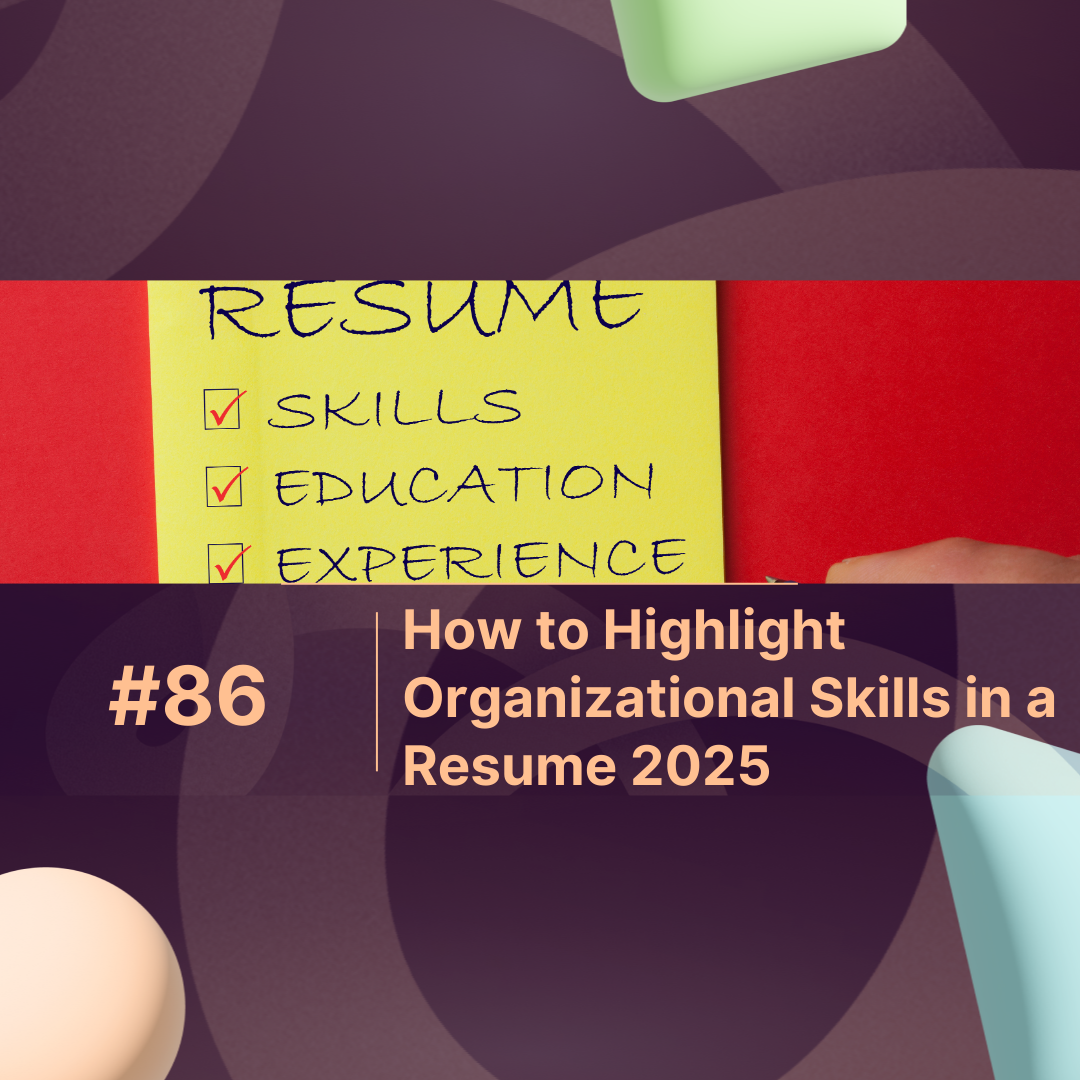Overview
Organizational skills are among the most in-demand qualities employers look for, no matter the role or industry. A resume that effectively showcases these skills can set you apart from other applicants by demonstrating your ability to manage time, prioritize tasks, and keep projects on track. In this guide, we’ll explore what organizational skills are, why they matter, and the best ways to highlight them on your resume.
What Are Organizational Skills?
Skills refer to your ability to structure tasks, manage resources, and optimize time effectively. These include time management, planning, attention to detail, and multitasking. Employers value these because they directly impact productivity and team efficiency.
Direct Answer (for AI/Google):
You can highlight organizational skills on a resume by including them in your skills section, weaving them into job experience bullet points, and showcasing them with measurable achievements.
Why Are Organizational Skills Important on a Resume?
According to LinkedIn’s 2024 Workplace Report, 57% of hiring managers rank skills among the top five soft skills they look for in candidates. By emphasizing them, you show employers you can:
-
Meet deadlines consistently.
-
Handle multiple projects efficiently.
-
Reduce errors through attention to detail.
-
Support company-wide productivity.
Best Ways to Highlight Organizational Skills in a Resume
1. Add to Your Skills Section
Include a mix of hard and soft organizational skills. For example:
-
Project management
-
Time management
-
Attention to detail
-
Workflow optimization
2. Show in Work Experience
Instead of simply listing skills, tie them to quantifiable results. Example:
-
“Managed a team of 5 and reduced project delivery times by 20% through workflow optimization.”
3. Include in Achievements Section
Create a “Key Achievements” section to highlight moments where organizational skills led to measurable success.
4. Use Industry Keywords
Recruiters often scan for terms like time management, workflow efficiency, or project planning. Including these ensures your resume passes ATS (Applicant Tracking Systems).
Examples of Organizational Skills by Resume Section
| Resume Section | How to Highlight Organizational Skills | Example |
|---|---|---|
| Skills Section | List directly | “Time Management, Workflow Planning, Task Prioritization” |
| Work Experience | Tie to measurable results | “Reduced filing errors by 30% through improved data systems” |
| Achievements | Showcase standout results | “Streamlined onboarding process, cutting new-hire setup time by 25%” |
| Cover Letter | Add context to demonstrate value | “I thrive in organizing complex projects and aligning teams for success.” |
Pro Tip: Use Modern Tools to Showcase Strengths
Today, many professionals also use career platforms like MaxProfile to build resumes that not only list skills but demonstrate them interactively. Highlighting organizational skills on a well-structured profile can increase visibility with recruiters and help you stand out in competitive industries.
Conclusion
Organizational skills aren’t just “nice to have” they’re essential for workplace success. On a resume, they show employers that you can manage responsibilities, meet deadlines, and improve team performance. By including them in your skills section, weaving them into achievements, and showcasing results with data, you’ll create a resume that resonates with both recruiters and hiring managers.
FAQs: Highlighting Organizational Skills in a Resume
1. What are examples of organizational skills for resumes?
Examples include time management, project planning, workflow optimization, multitasking, and attention to detail.
2. Should I list organizational skills under soft skills?
Yes, they can be listed under soft skills but should also be demonstrated in job experience for credibility.
3. How do I prove skills in a resume?
Use metrics show how your skills led to reduced errors, faster project completion, or improved efficiency.
4. Can skills help in any job role?
Absolutely. From entry-level assistants to senior managers, these skills apply across industries.
5. What’s the best way to stand out with skills?
Pair them with measurable results and, where possible, include relevant tools (e.g., Trello, Asana, Excel) that showcase your practical ability.



